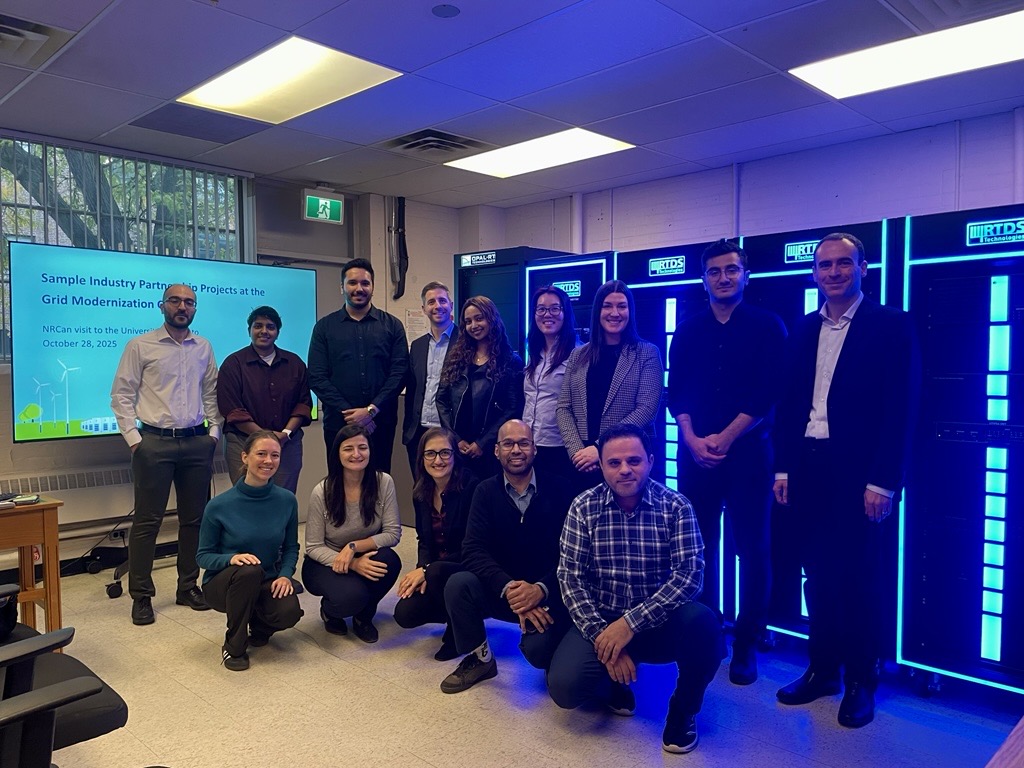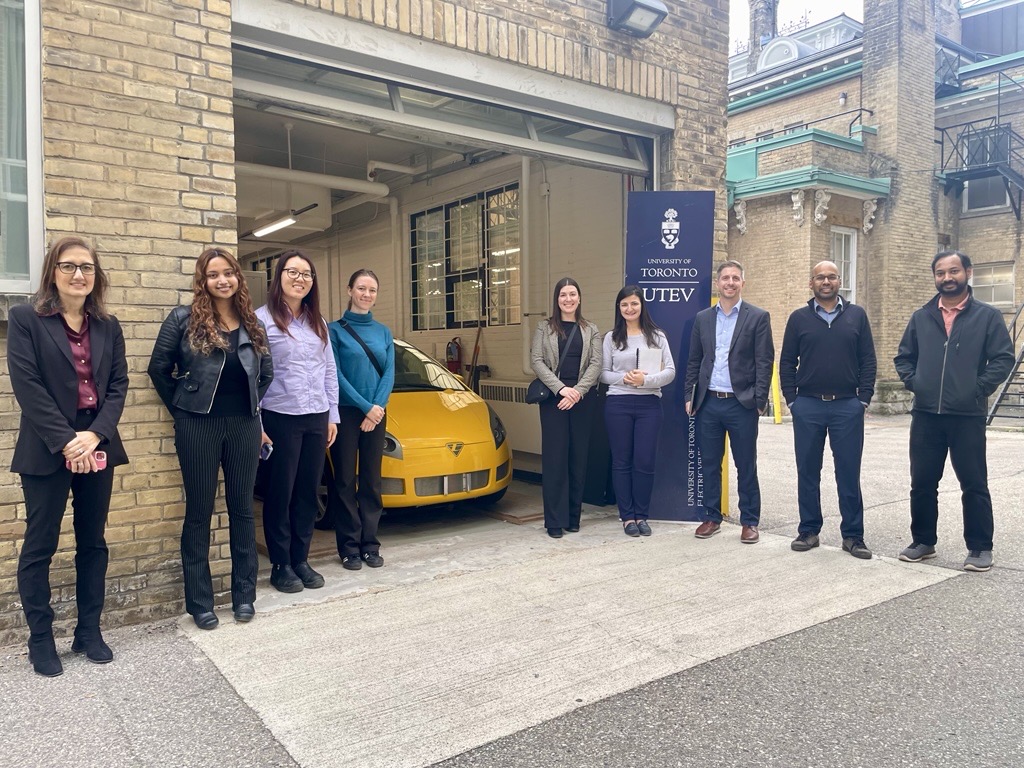
On October 28, University of Toronto’s Lawson Climate Institute and the Edward S. Rogers Sr. Department of Electrical & Computer Engineering (ECE) welcomed delegates from Natural Resources Canada (NRCAN) for a site visit and exclusive updates on how researchers are advancing Canada’s electrical grid for a cleaner, greener future. The delegates received project updates and behind-the-scenes lab tours highlighting U of T research into more sustainable, reliable, and resilient energy systems.
Recently ranked as Canada’s number one university for research impact, U of T is bringing together experts from across disciplines to tackle the climate challenge and a just energy transition. The visit offered NRCAN delegates a firsthand look at how that expertise is being applied to transform Canada’s power infrastructure.
During the visit, the delegation received an in-depth update on and tour of the Grid Modernization Centre, a collaborative initiative led by Ali Hooshyar, Associate Professor in ECE, and funded by NRCAN and the Federal Development Agency for Southern Ontario. The project aims to drive innovation in grid management, integrating renewable energy sources, enhancing system reliability, and enabling smart, data-driven decision-making to meet the challenges of a net-zero future. The Centre’s leadership team contains three Canada Research Chairs from University of Toronto who are uniting their expertise.
“U of T’s Grid Modernization Centre is a strategic priority for the Department of Electrical & Computer Engineering,” said Deepa Kundur, who is Professor & Chair of The Edward S. Rogers Sr. Department of Electrical & Computer Engineering, and Canada Research Chair in Cybersecurity of Intelligent Critical Infrastructure. “It is more than just a facility; it is a multidisciplinary hub that is supporting technology development, driving innovation through partnerships, and training the next generation of energy leaders.”
“A core mandate of the Grid Modernization Centre is to engage partners across sectors and geographic areas, from local utility providers to small and medium-sized enterprises,” added Shatha Qaqish-Clavering, Interim Executive Director of the Lawson Climate Institute. “Through shared expertise and infrastructure, the Centre is helping to democratize innovation in Canada, ensuring that grid modernization benefits communities and industries of all sizes.”
Following the briefing, delegates toured the state-of-the-art Grid Modernization Centre facility, where researchers are testing solutions for distributed energy integration and grid resilience. Inside the Centre, Professor Hooshyar was joined by student researchers who presented updates on advanced simulation, automation, and real-world testing technologies improving how electricity is generated, transmitted, and distributed. The presentations demonstrated first-hand how U of T’s research ecosystem is preparing the next generation of engineers and energy experts.

The visit continued with a tour of the U of T Electric Vehicle (UTEV) Research Centre, where faculty and students are developing cutting-edge technologies to support the growing electric vehicle market and its integration with the power grid. The tour was led by UTEV Director Olivier Trescases, who is also a Professor in the ECE department and Canada Research Chair in Power Electronic Converters. UTEV is a game-changing university-industry partnership, focused on next-gen EV technologies through multi-disciplinary collaborations.
Concluding with conversations about ongoing impact and future opportunities, the visit underscored the importance of collaboration between government, academia, and industry in accelerating Canada’s clean energy transition.
Through initiatives like the Grid Modernization Centre, the Lawson Climate Institute and ECE are advancing practical, scalable solutions to modernize the grid, and helping position Canada as a global leader in sustainable energy innovation.
We look forward to future opportunities to welcome government, industry, and community partners for updates on the Centre.
For more information on University of Toronto’s Grid Modernization Centre, visit: lci.utoronto.ca/grid-modernization-centre.